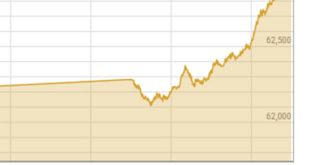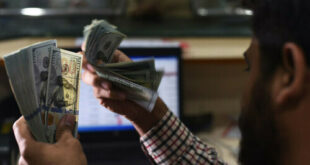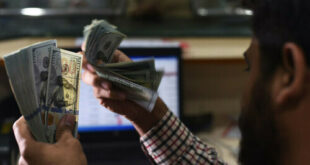In the present day, no nation can prosper on its own. They must trade to get labor, technology, fuel, etc. Pakistan needs help or borrows money from foreign lenders to make up the difference between how much it wants to import and how little it can sell for a profit. The International Monetary Fund (IMF), the World Bank, and the Asian Development Bank are examples of donor organizations and multilateral lenders that may help in this situation. Compared to commercial sources, they provide grants or loans on more favorable terms, although often with conditions.
Writer, lecturer, and broadcaster Kenan Malik called foreign aid a “fraud” that rich nations use to bribe or blackmail weaker economies in a September 2018 Guardian article that noted former British Prime Minister Theresa May’s declaration that “in the post-Brexit world, Britain’s aid budget would be used to promote British trade and political interests.”
In Pakistan, most agencies support projects independently (with monies funneled via the Economic Affairs Division, etc.). However, a small number of donor agencies often operate through the government. International NGOs raise cash or carry out initiatives funded by donors. For example, let us assume that the nation is home to around 17–20 sizable INGOs and large donor organizations. There may be multiple active initiatives for each of them, some of which may include many local and national NGOs.
Thus, these international agencies and INGOs may oversee hundreds of projects or local partners operating in several areas simultaneously. This has meant that the nation has not had a completely integrated development plan or program for the last several decades. Outsourcing national goals, development strategies, and their execution defies all accepted notions of management.
See also Debt and Aid.
Skilled and seasoned project workers are let go after their tasks are completed. Government capability is impacted because average employees do not yet have the same experience and training in program design, documentation, and implementation monitoring. Institutional memory and learning disappear.
International organizations don’t need to force a developed nation to practice responsible financial management.
In the previously cited paper, Kenan Malik discovered that the interests of powerful countries also impacted international funding from institutions like the IMF. There’s good reason to concur.
Decisions at the IMF are not made using a one-country, one-vote system; instead, votes are allocated according to a nation’s financial commitment to the organization. Pakistan’s vote share is thus 0.4%, compared to 16.5 percent for the US and 6 percent each for its close allies Japan, Germany, the UK, and France. China’s vote share is six percent. Westerners make decisions at the agency.
It is worth noting that Pakistan got a net of $2.1 billion from the IMF in FY20 but paid back $600 million more in fiscal year 2021 than it received. All bilateral and multilateral funding received from July to March of FY22 was around $5 billion.
The quantities seem minor for a nation whose “official” GDP is $380 billion. Why its successive administrations have continued to show such subservience to wealthy nations is quite a puzzle.
The country’s expenses (and imports) far outweigh its income (and exports), which is one of the reasons. However, there is also the worry of consequences. Sanctions may seriously affect the nation’s ability to purchase defense equipment, export goods, and send workers abroad. Most of our foreign employees require more expertise, and workers from other developing countries could easily replace them. A small, enraged Middle East government may do us significant damage.
Our meager exports are readily replaced, which is one of the reasons the nation has given up cheap gas and power from Iran and now cheap oil from Russia.
Reliance on outside sources.
70% of our exports are still made up of rice, leather goods, and cotton manufacturers. Pakistan’s top export markets include the US (21%), China (11%), the UK (7%), Germany (5%), and so on. Its ability to sell to Western nations depends on obtaining a “favorable” status from them. An irritated West may refuse to provide visas to enthusiastic officials with high hopes for the future, and he can also get towels from elsewhere.
There have been cases in the past when the perceived insult caused a delay in delivering military equipment for which payment had already been made.
International organizations don’t need to force a developed nation to practice responsible financial management. Pakistan’s budget and income must be balanced to be considered fully sovereign.
A nation must live within its means to comply with IMF conditionalities. The receiving nation can choose where to decrease expenditures, such as limiting the wealthiest and powerful or slashing services for the underprivileged. The lender does not assume responsibility for any adverse effects on the nation’s people; its primary goal is to recoup its debts.
Pakistan must strengthen its defenses against outside influence. First, our foreign workers will be paid more and harder to replace if they possess more training and competence.
Second, a variety of export products and export locations are required. Exports must be acquired through fair competition rather than depending on being designated as a preferred country.
Thirdly, one should aim to produce defense equipment independently. This will be achievable with a defense plan fit for a developing nation, which must vary from the plans of the major countries where many of our military personnel are trained. The production and sale of military hardware may also be used to pay for defense spending, although this would need civilian financial control.
 Pakish News We are an interactive media group that here a purpose to update users with the latest information. Our mission is to give you knowledge not only about your surroundings. We will also update you around the Globe.
Pakish News We are an interactive media group that here a purpose to update users with the latest information. Our mission is to give you knowledge not only about your surroundings. We will also update you around the Globe.



